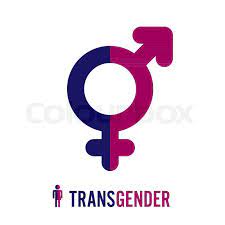Vocal Change Surgery, also known as laryngeal surgery or voice surgery, is a medical procedure designed to alter the pitch, quality, or resonance of a person’s voice. This type of surgery can be particularly beneficial for individuals undergoing gender transition, performers looking to enhance their vocal abilities, or those suffering from vocal disorders. As voice is a significant part of our identity and how we communicate, understanding this option can be essential for many.
In this article, we will discuss what vocal change surgery entails, the various types of surgeries available, and the transformative effects it can have on one’s voice. We’ll also delve into the procedure itself, recovery time, associated risks and benefits, real patient experiences, and how to determine if this surgery is the right choice for you. Low Estrogen Symptoms FemaleForced Feminization Clips
What is Vocal Change Surgery and Who Needs It?
Vocal Change Surgery refers to a range of surgical procedures aimed at modifying the voice’s characteristics. The most common candidates for this surgery typically include transgender individuals seeking to align their voice with their gender identity, performers aiming for a more powerful or versatile voice, and individuals with voice disorders that interfere with normal vocal function. Each of these groups has unique needs and expectations from the surgery, making it essential to tailor the approach to the individual.
For transgender individuals, vocal change surgery can lead to significant psychological and emotional benefits. Many feel that aligning their voice with their gender identity helps them feel more authentic and confident in their lives. On the other hand, performers may seek this surgery to enhance their career opportunities by achieving a specific vocal quality that allows them to stand out in a competitive industry.
The Different Types of Vocal Change Surgeries Explained
There are several types of vocal change surgeries, each aimed at achieving different results. One of the most common procedures is called "thyroplasty," which adjusts the tension and length of the vocal cords to raise the pitch of the voice. This procedure is especially popular among transgender women who want a higher-pitched, more feminine-sounding voice. Another type is "vocal cord augmentation," which involves injecting materials into the vocal cords to add volume and create a fuller sound, often used for individuals seeking a deeper voice or to address voice disorders.
Other less common procedures include laser-assisted surgery, which can precisely alter vocal cord structure without affecting surrounding tissues, and surgeries that address specific vocal cord issues, such as nodules or polyps. Each type of surgery has its own set of indications, techniques, and expected outcomes, making it crucial for patients to consult with an experienced voice surgeon to find the best fit for their needs.
How Vocal Change Surgery Can Transform Your Voice
The effect of vocal change surgery can be truly transformative. Many patients report significant changes in their vocal quality, making their voices sound more aligned with their gender identity or desired vocal characteristics. For transgender women, the surgery can help achieve a higher pitch and a softer tone, while for transgender men, it can deepen the voice, resulting in a more masculine sound. Performers may find their vocal range and power enhanced, giving them greater versatility when singing or acting.
It’s essential to understand that while vocal change surgery can bring about substantial improvements, it is not a guaranteed fix for all vocal concerns. The surgery may take time to yield the desired results, and the final vocal quality can depend on various factors, including the patient’s anatomy, prior vocal training, and adherence to postoperative voice rehabilitation. This journey often leads to a newfound sense of ownership over one’s voice, which can be empowering and life-changing.
The Procedure: What to Expect on Surgery Day
On the day of the surgery, patients typically arrive at the outpatient surgical facility, where they will undergo a thorough preoperative assessment. Anesthesia is administered to ensure comfort during the procedure, which usually lasts between one to three hours depending on the complexity of the surgery. The surgeon will make small incisions or utilize endoscopic techniques to access the vocal cords, allowing for precise adjustments to be made based on the specific goals of the surgery.
After the procedure is completed, patients are monitored for a few hours to ensure there are no immediate complications. They might be given instructions on how to care for their voice post-surgery and will often have a follow-up appointment scheduled to monitor recovery and progress. It’s a good idea to have a support system in place for transportation and assistance during the initial recovery phase.
Recovery Time: Healing After Vocal Change Surgery
Recovery time after vocal change surgery can vary widely from person to person, depending on the type of procedure performed and individual healing responses. Generally, patients can expect a recovery period of several weeks, during which they may be advised to avoid talking, whispering, or any vocal strain to ensure the best healing outcomes. This vocal rest is crucial for allowing the delicate tissues of the vocal cords to heal properly after surgery.
During the recovery phase, patients are often encouraged to engage in voice therapy with a speech-language pathologist. This therapy can help retrain the voice and optimize vocal function, leading to better long-term results. Regular follow-up appointments with the surgeon will also be essential to monitor the healing process and address any concerns that may arise during recovery.
Risks and Benefits of Getting Vocal Change Surgery
As with any surgical procedure, vocal change surgery entails specific risks and potential complications. Some patients may experience side effects such as swelling, bleeding, or infection. There’s also a risk that the desired vocal changes may not be achieved, leading to dissatisfaction with the results. In some cases, patients may experience voice changes that are not permanent, which can be disappointing for those looking for lasting transformation.
On the flip side, the benefits of vocal change surgery can be life-altering. Many patients report improved self-esteem, better communication, and a newfound sense of alignment with their gender identity. For performers, the ability to project their voice effectively and reach new vocal ranges can enhance their careers and artistic expression. Ultimately, the decision to undergo vocal change surgery should be made after careful consideration of both the risks and potential benefits, ideally in consultation with healthcare professionals.
Real Stories: Successes and Challenges from Patients
Hearing from those who’ve undergone vocal change surgery can provide invaluable insights into the experience. Many patients share their success stories, describing how the surgery has positively impacted their lives. For instance, a transgender woman may express how her newly transformed voice allows her to navigate social situations with greater confidence, leading to more fulfilling personal and professional relationships. Similarly, a performer may discuss how enhanced vocal capabilities have opened doors to new roles and opportunities in the entertainment industry.
However, not every story is without challenges. Some individuals have faced difficulties during the recovery process or found that the results didn’t fully meet their expectations. In these instances, patients may have sought additional therapy or even revision surgeries to achieve their desired vocal changes. These real-world accounts remind us that while vocal change surgery can be highly beneficial, it is also a complex process that requires patience, support, and realistic expectations.
Is Vocal Change Surgery Right for You? Key Considerations
Deciding whether vocal change surgery is right for you requires careful consideration of several factors. First, it’s essential to assess your motivations for the surgery and how it aligns with your personal goals. Are you seeking a voice that matches your gender identity, or are you looking to enhance your performance abilities? Understanding your motivations can help guide your discussions with healthcare professionals.
Additionally, consider your current vocal health, any underlying conditions that may impact your vocal cords, and your overall expectations for the surgery. Consulting with an experienced voice surgeon and possibly a speech-language pathologist can provide clarity on what is feasible and what you can realistically expect. Ultimately, the decision should be informed by both personal desires and professional guidance, ensuring a well-rounded approach to this significant life change.
Vocal Change Surgery can be a powerful tool for those looking to transform their voice, enhance their self-expression, and align their vocal characteristics with their identity. Whether you’re a transgender individual seeking authenticity, a performer aiming to elevate your craft, or someone dealing with vocal challenges, understanding the options and implications of this surgery is crucial. As with any medical procedure, thorough research, open dialogue with healthcare professionals, and honest self-reflection are key steps in making an informed choice. Your voice is an integral part of who you are, and taking steps to ensure it reflects your true self can lead to profound changes in your life.


